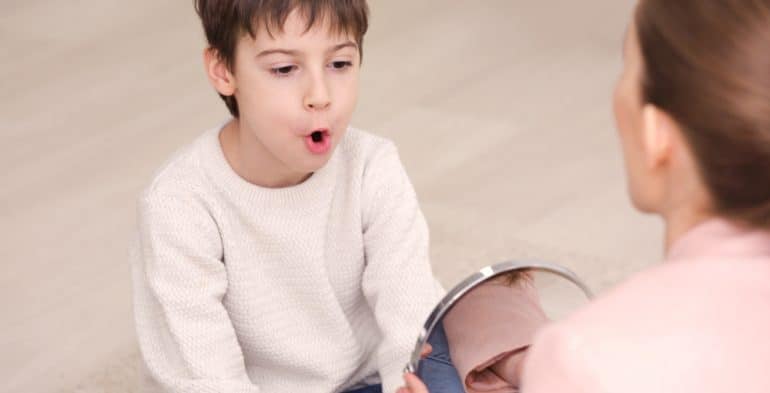
What’s the problem?
In order for children to communicate successfully, they need to be able to understand what they have heard and have the ability to express themselves effectively when others are listening.
If a child is experiencing difficulties with: understanding or verbalizing in their primary language,
using fluent speech or pronouncing sounds accurately, a communication breakdown occurs that will affect the message that was spoken and/or received.
Who can help?
Paediatric speech and language pathologists or therapists will provide an assessment, diagnosis, and therapeutic strategies to help children attain their communicative potential. They also provide assistance with oral-motor control, feeding and swallowing.
Who can benefit from speech and language therapy?
Children with:
- Overall delays in language development: delays in understanding/use of language
- Articulation or phonological errors: difficulties with the speech sound system or sound patterns
- Voice problems: difficulties with pitch, loudness level, vocal quality (hoarse or breathy voice) or resonance (decreased or increased nasality)
- Disfluency: stammering or stuttering
- Hearing impairment
- Autistic Spectrum Disorders
- Neurological/genetic disorders: i.e. traumatic brain injury, cerebral palsy, Down Syndrome, cleft palate, and apraxia (affecting planning and sequencing of speech movements as well as organization of speech)
How can you tell if your child needs help?
Children who need speech and language therapy may have difficulties with understanding and using their language as effectively as their age level peers. It may be a good idea to check with a speech and language pathologist or therapist if your one to three-year-old does not attain the following developmental milestones within the approximate time frames described below:
Between 12 and 15 months of age children should be:
- Following basic instructions “Come here”, “Give me”
- Responding to others or responding to his/her name
- Understanding and saying “no”
- Pointing to objects or people
- Saying approximately 3- 5 words
- Saying “mama”,“dada” or “baba”
Between 24 – 27 months of age months of age your child should be:
- Identifying objects, basic body parts, several actions, and answering basic“Where”and “What” questions
- Understanding two-part instructions
- Demonstrating use of specific objects
- Using 50 – 75 words
- Beginning to put two and three words together (“Go car”, “Eat more”, “Give me bottle”).
- Using pronouns “I, me, mine “
Between 33 to 36 months most children are:
- Understanding and using a variety of verbs (action words) and adjectives (descriptions)
- Understanding and using a variety of pronouns (I, you, me, my, your, he, she, they)
- Pronouncing all vowel sounds accurately and the following consonant sounds during a conversational speech [p, b, m, t, d, n, h, w].
- Using an expressive vocabulary of 300-1000 words
- Asking a variety of questions (What? Where ?, Who?, Why?)
- Verbalizing three prepositions (in, on, under)
- Giving his/her full name
- Having a basic conversation
- Increasing their development of language on a month to month basis
- Speaking fluently without a stammer or stutter
Why so early?
Early detection of speech and language difficulties can significantly impact your child’s development. Children attain a great deal of their language comprehension and verbal expression by the age of three. By intervening at an early age, your child can improve the ability to interact with others while developing his/ her social skills. This, in turn, will decrease your child’s frustration while enabling you to incorporate specific strategies to facilitate effective, successful communication.
If you have any questions about your child’s speech and language capabilities, call a speech and language therapist. The therapist will be able to determine whether your child may need some assistance and can also guide you with the appropriate intervention strategies if necessary.








